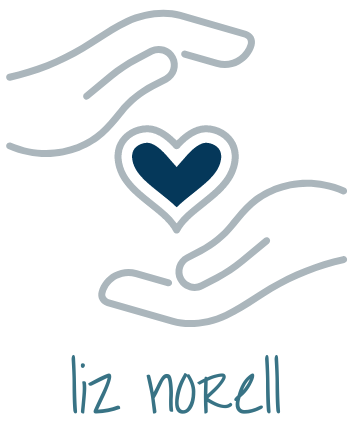Our classes start in two weeks, and today I sat down to write an email to my spring-semester students. Are you surprised to hear it was L-O-N-G?? Of course not, unless you’re here for the first time. 😉
I’m so happy with the tone it struck, I thought I’d share with my readers… just because I think it’s so important to be transparent with students and one another about the pedagogical choices we’re making and why. If this helps you imagine how you might introduce students to your course, so much the better!
Hi there! I’m writing to interrupt your winter break with some basic information about our American Government course that starts in two weeks. Our first class meeting is set for Wednesday, January 19 at 12:30 pm. In this email, you’ll find some tips and information that will hopefully relieve any anxiety you might be feeling about this course. (I know I always felt nervous about what the expectations would be before classes began, anyway.)
You do not need to read this email now. Nothing is required of you prior to January 19, so if you’d rather stay in the blissful clutch of winter break, close out this message now and come back when you’re ready. (I am on vacation this week anyway, so I’m not exactly living in work mode, either.)
This email is long, so I’ve broken it up into sections. Scroll down to find out more about:
1) Class meetings—what we’ll do, what if you cannot come to class, etc.
2) Books—how to find them cheaply (or use free versions)
3) Class structure—what you’ll be asked to do
4) Preview the syllabus
5) Communication
Class meetings
Our class has in-person meetings scheduled on Mondays/Wednesdays, 12:30-1:45 pm, in OMNI 142. I’m pretty sure that most of us would love to live in a world where keeping to that schedule for seven weeks was breezy and fun and stress-free… but if you are having anxiety about COVID numbers in Hamilton County (and I definitely am!), you may be feeling uncertain about this.
I use class meetings for things we cannot easily do online. This might be discussions, Kahoot or Jeopardy-style games, walk-and-talk breaks, or other activities to make the learning more fun and less monotonous. I also appreciate using class time to check in with one another and experience human-to-human connection, which we are designed to need/crave but which the pandemic has made more difficult (and which introverts—like me!—also try to avoid). However, from a learning perspective, everything you need for this class can be acquired/achieved fully online.
For that reason, for each of our in-person meetings, you’ll be able to join us via Zoom live, watch a Zoom recording, or choose not to attend at all. The expectations for this class are exactly the same whether I’m teaching in-person or online; I will not penalize you for not being in class. THAT SAID – it’s more enjoyable and meaningful for us all if we are together. I suggest you give our class time a chance before deciding to treat this like an online class; you signed up for an in-person experience, and as long as it’s safe for us to do so, I think it’s best if we try to make that happen.
This also means you do not—EVER—need to explain to me why you miss a particular class meeting. You are human; life happens, and I trust you in all things, but especially to make the right decision for you. If you want to let me know about something going on in your life, I will listen with an open mind and gratitude that you trusted me with details about your circumstances. However, none of this is required. (And you especially do not need to send me photographic evidence of bodily trauma to excuse an absence. PLEASE NO ER PHOTOS! 😊)
Books
#1: Everyone should have access to Fault Lines in the Constitution, which is a YA textbook about the Constitution that works really well for this course. It reads quickly and easily, yet it also contains a lot of important and interesting information.
How to get it:
• Buy new from the ChattState bookstore or elsewhere—new should be $20 or less.
• Buy used from McKay’s or from sellers on Amazon.com.
• Two copies are reserve at the ChattState library (behind the reference desk) for 2-hour, in-library use.
• An eBook version is available through our library—this is accessible via your computer from anywhere with your TigerID/password, but is of the previous edition. It will work, just check the chapter converson chart in eLearn to ensure you’re reading the correct chapters.
• I have a couple of copies in my office that I’m happy to lend you to read at home.
#2: You should also have access to ONE of two additional books: either Just Mercy by Bryan Stevenson or Evicted by Matthew Desmond. The one you choose will be your primary reading for the course, and you’re welcome to start reading now if you want a jump start on the semester.
How to get them:
• Buy new from the ChattState bookstore or elsewhere—new should be $15 or less.
• Buy used from McKay’s or sellers on Amazon.com. These are usually $5 or less.
• Copies are available for checkout through our library.
• The library also has an eBook of Just Mercy you can access online.
• I have about a dozen copies of Just Mercy and a half-dozen of Evicted; you can borrow one for the semester (for free, obviously). Just ask.
• Both are also available as audiobooks. (As a bonus, Bryan Stevenson reads his book Just Mercy, which enhances the experience.) AUDIOBOOKS TOTALLY COUNT AS READING!
** A note about the books: You will be reading these on your own throughout the semester. Twice—roughly at weeks 3 & 6—you’ll be invited to share your thoughts about Just Mercy/Evicted with your classmates. There are no quizzes and no assignments related to these readings. They’re basic requirements of the course and literally hundreds of past students have emphatically endorsed these readings as well worth your time. I have even had students threaten to haunt me for life if I ever stop making Just Mercy a part of the curriculum—and that includes individuals who routinely described themselves as “not a reader.” If you take the time to read these texts, I’m absolutely convinced you will be glad you did.
Class structure
Roughly around the start of the pandemic, I began radically changing the way I approach the actual work of this course. Very, very few things are absolutely required. Most of what you’ll do for this class will be of your own choosing. There are no exams, no research papers, and no make-or-break assignments. Instead, I want you to learn something that will be meaningful and interesting to you.
This means that the course may feel really disorganized or overwhelming for you. Let me apologize now if that will trigger any nervousness or uncertainty. I will remind you over and over and over again what I’m expecting and whether you’re on track. A secondary goal of this course is to help you figure out what you are interested in—to develop some agency over your learning and interests. Learning happens when you’re curious, interested, and invested; it doesn’t happen when you feel bullied, pressured, or shamed.
For that reason, there are no drop-dead deadlines nor any late penalties. For some, this may become an invitation to do nothing for six weeks and then panic and do everything (probably poorly) in week 7. I will assume, if that’s you, that it’s because other classes are a higher priority/have more rigid policies, or life got complicated, or you’re dealing with your own inner struggles. In other words, I won’t take it personally. However, I will worry about you and check in, and I’ll offer to help however I can.
At the end of the semester, you will evaluate your own work in the course and assign yourself a grade based on your effort + learning. Typically, I take that self-assigned grade and submit it to the College as your semester grade. Rarely (like, very very rarely) I may feel a different grade makes sense and submit that one.
GENERALLY, though, I will expect that you have:
• Completed the required readings.
• Completed a semester project (more on this later, but it’s not hard, not time-consuming, and not pointless).
• Engaged in some number of self-directed learning activities, with
o 15 being the expectation for a C,
o 20 for a B, and
o 25 for an A.
There are more than 200 choices for these learning activities. They’re podcasts, movies/videos, books, articles, and activities. I haven’t yet updated this for spring, but you can check out the fall 2021 catalog of choices in the Content Library, available here.
After you complete a learning activity, you’ll write a short (usually about a paragraph or so) reflection on what you learned from/thought about it. These should be written informally, in first person, and focus on your perspective. I’m not looking for a summary; I want to have a glimpse inside your thinking and feeling about what you engaged with. These will be submitted in eLearn dropboxes or via Discord.
As above, if you are eager to get a jump start on the semester, you can begin exploring any of these items that you like.
Preview the syllabus
I use a Google Site for my syllabus, so it’s easier to access quickly on a phone/tablet AND easier for me to update. Having a web site for a syllabus is also more accessible for those with visual challenges (you can blow up the font size or use a screen reader).
Here’s the working site for the spring 2022 syllabus: https://sites.google.com/view/ag-sp22/home
I haven’t yet updated the calendar, so you won’t see anything on that page, but you can click around and get a gist of what to expect.
Communication
If you email me this week, you’ll get an auto-responder message saying I’m out until Jan. 10. However, I ALWAYS privilege student communications, so a reply to this (or a new email in the next seven days) will get read and, if needed, responded to.
The easiest way to reach me is via text, and I’m happy for you to communicate with me in that way if you’re comfortable. The first time you message me, please identify yourself by name so I can save your contact info. My # is xxxxxxxxxx. Never worry your message might wake me up; I keep my notification sounds off 24/7, so it’s never too late or too early to message. If I haven’t responded within a few hours, try again; chances are it came in while I was busy and I forgot to reply. You will never, ever offend me by messaging multiple times. At times, I get overwhelmed by the amount of communication coming in and forget things. (I blame getting older.)
You will have the option of sharing your learning activity responses, and also just chatting with other students, via Discord. This is not required. Many of you may already use Discord and like it, though, so you’re welcome to do so.
Once you’re in, I’ll add you to a private channel for our class. Meanwhile, you can engage on the general channel, talk politics in a separate channel for that, or post funny memes/videos in the just_for_fun channel. 😊 Again, entirely at your discretion.
If you made it this far, WOW! Perhaps your winter break has gotten a bit boring or perhaps you’re just really excited about starting a new semester (or maybe it’s just anxiety…?)! Either way, congrats!
Incidentally, I am really transparent about the fact that I struggle with anxiety myself, so you may have noticed that word came up a lot in this message. Too often, I think Americans feel ashamed about mental health struggles. I emphatically do not, and I’m on a one-woman crusade to normalize talking about these things. In general, too, I just really want you to feel comfortable bringing your whole human self into the classroom (as it feels safe/appropriate to do so). I care about you as a person first; the school work is my job, but it’s not the focus of my care.
So, with all that said, enjoy these last two weeks! And if there is ever anything I can do to make your life easier—in this class, another class, or just generally—reach out. You are the reason I love my job and love teaching so much. 😊
Liz
PS: You’re welcome to call me Dr. Liz, Dr. Norell, Professor Norell, Ms. Norell, or Liz. All are accurate and appropriate with me.




